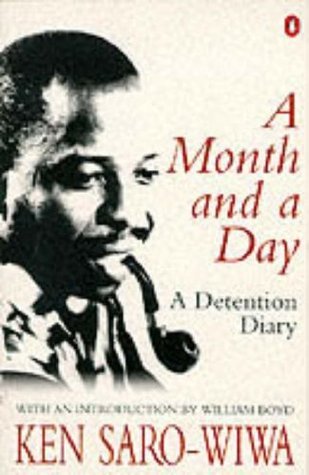What do you think?
Rate this book


256 pages, Paperback
First published January 1, 1995
It is not the leaking roof
Nor the singing mosquitos
In the damp wretched cell.
It is not the clank of the key
As the warder locks you in.
It is not the measly rations
Unfit for man or beast
Nor yet the emptiness of day
Dipping into the blankness of night
It is not
It is not
It is not
It is the lies that have been drummed
Into your ears for one generation.
It is the security agent running amok
Executing callous calamitous orders
In exchange for a wretched meal a day
The magistrate writing in her book
Punishment she knows is undeserved
The moral decreptitude
Mental ineptitude
Lending dictatorship spurious legitimacy
Cowardice masking as obedience
Lurking in our denigrated souls.
It is fear damping trousers
We dare not wash off our urine
It is this
It is this
It is this
Dear friend, turns our free world
Into a dreary prison
- The True Prison by Ken Saro-Wiwa
Being prepared for the worst is always one thing; confronting its stark actualization is another … how does one erase the image of a friend and comrade, suspended in the immense loneliness of a prison yard?
Wole Soyinka